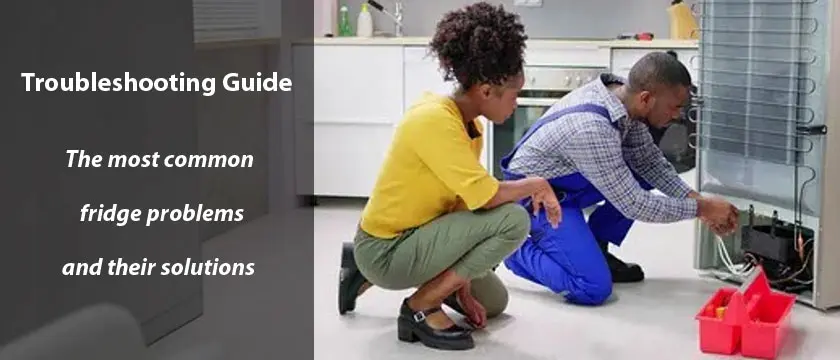
Troubleshooting Guide: Most common fridge problems and their solutions
A refrigerator is an essential appliance in any home, keeping our food fresh and drinks cold. However, like any other device, refrigerators can encounter issues that affect their performance. In this guide, we will discuss some of the most common fridge problems and provide solutions to help you troubleshoot and resolve them effectively.
Refrigerator Not Cooling Properly
One of the most common issues with refrigerators is when they fail to cool at the desired temperature. Several factors can cause this problem, such as a dirty condenser coil, faulty evaporator fan motor, or a malfunctioning thermostat.
Solution:
- Check the condenser coil located at the back of the fridge and clean it with a brush or vacuum to remove any dust or debris that may be blocking airflow.
- Ensure that the evaporator fan motor is running smoothly. If not, it may need to be replaced.
- Test the thermostat by turning it up and down to see if it responds. If it doesn't, consider replacing it.
Leaking Water
Finding a pool of water beneath your refrigerator can be alarming. This issue is often caused by a clogged or frozen defrost drain, a cracked water supply line, or a faulty water filter.
Solution:
- Locate the defrost drain and clear any obstructions using a pipe cleaner or hot water to melt any ice buildup.
- Inspect the water supply line for cracks or leaks. If damaged, replace it immediately.
- If the water filter is old or clogged, replace it according to the manufacturer's instructions.
Excessive Frost Build-Up
Excessive frost build-up in the freezer can lead to reduced cooling efficiency and potentially cause damage to the appliance. Common causes of this issue include a malfunctioning defrost timer, heater, or thermostat.
Solution:
- Check the defrost timer to ensure it is functioning correctly. If not, consider replacing it.
- Test the defrost heater using a multimeter to determine if it is working properly. Replace it if it's defective.
- Verify the thermostat settings and adjust them if necessary to prevent frost build-up.
Unusual Noises
Strange noises coming from your refrigerator can be unsettling. These noises can be caused by a variety of issues, such as a faulty evaporator or condenser fan motor, a worn-out compressor, or loose components.
Solution:
- Inspect the evaporator and condenser fan motors for any signs of wear or damage. Replace them if needed.
- Check the compressor for unusual noise or vibrations. If it is malfunctioning, consider calling a professional technician to repair or replace it.
- Tighten any loose components or hardware within the refrigerator to reduce noise levels.
Faulty Ice Maker
If your refrigerator has an ice maker and it's not producing ice, there could be several reasons for this problem. A clogged water line, defective water inlet valve, or a malfunctioning ice maker module are common culprits.
Solution:
- Check the water line supplying the ice maker for any obstructions. Clear any blockages to allow water to flow freely.
- Test the water inlet valve for proper functioning. If it's faulty, replace it with a new one.
- Inspect the ice maker module for any visible damage or defects. Consider replacing it if necessary.
Warm Fridge, Cold Freezer
When the refrigerator section is warm while the freezer remains cold, it indicates an issue with the airflow between the two compartments. This problem may be caused by a defective damper control or a blocked air vent.
Solution:
- Examine the damper control to ensure it opens and closes properly. Replace it if it's not functioning correctly.
- Clear any obstructions blocking the air vents between the fridge and freezer compartments to allow for consistent airflow.
Door Seal Issues
A damaged or worn-out door seal can lead to improper sealing of the fridge, resulting in temperature fluctuations and energy wastage.
Solution:
- Inspect the door seal for any signs of wear, tears, or looseness. Replace the seal if it's damaged to ensure a tight closure.
In conclusion, addressing common fridge problems promptly can help prolong the lifespan of your appliance and prevent costly repairs in the future. By following the solutions provided in this guide, you can troubleshoot and resolve these issues effectively. Remember to refer to your refrigerator's user manual for specific instructions and safety precautions when performing repairs.
